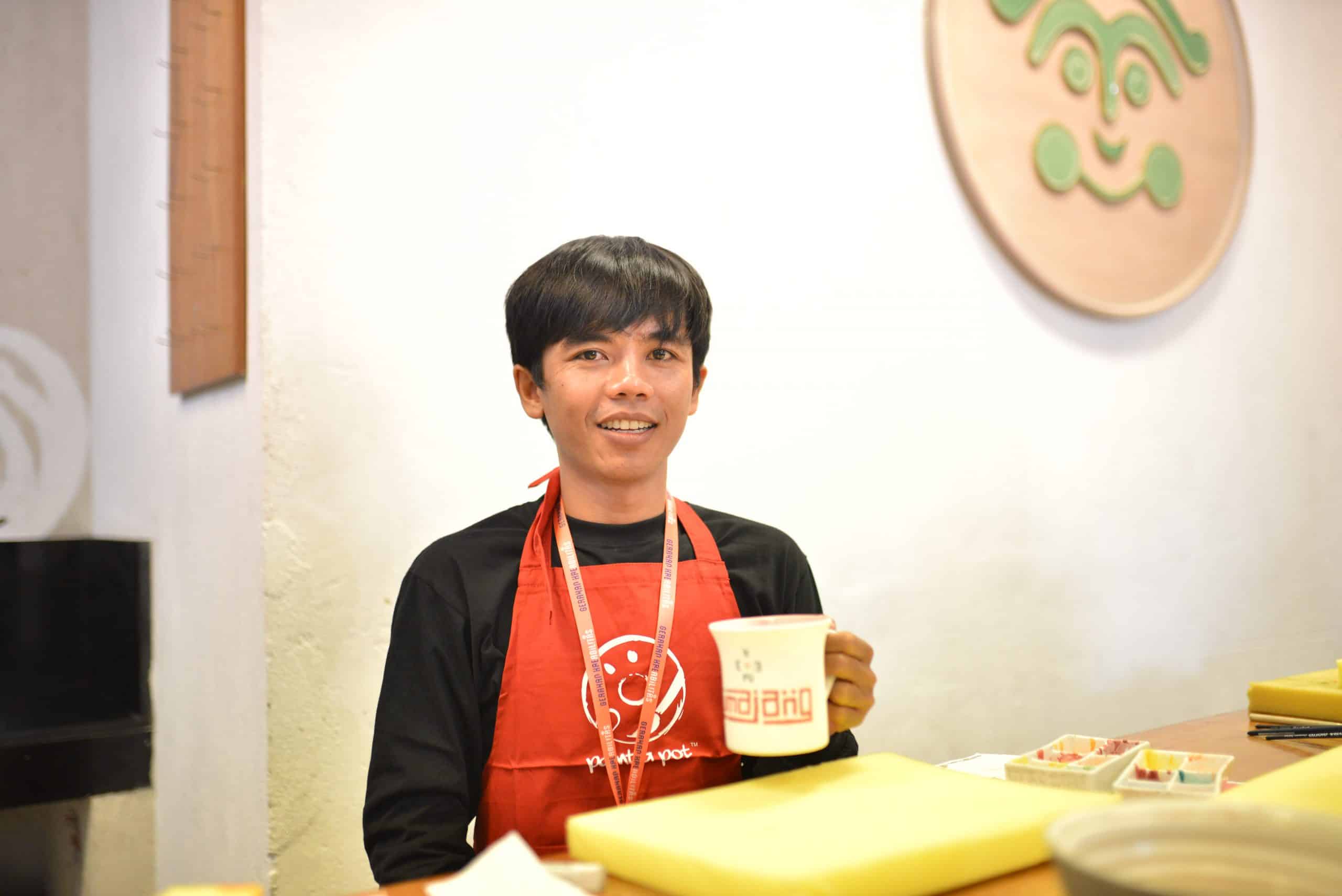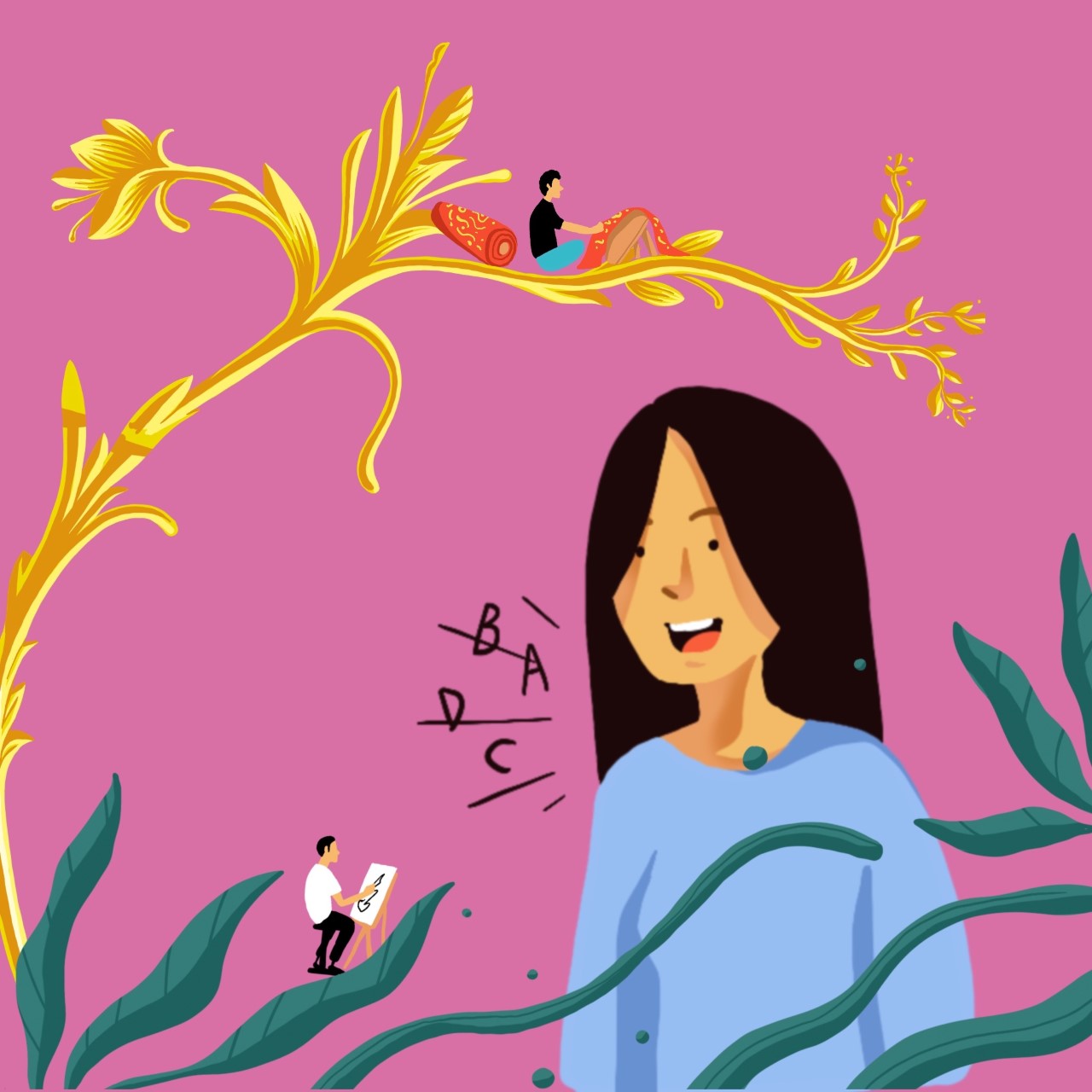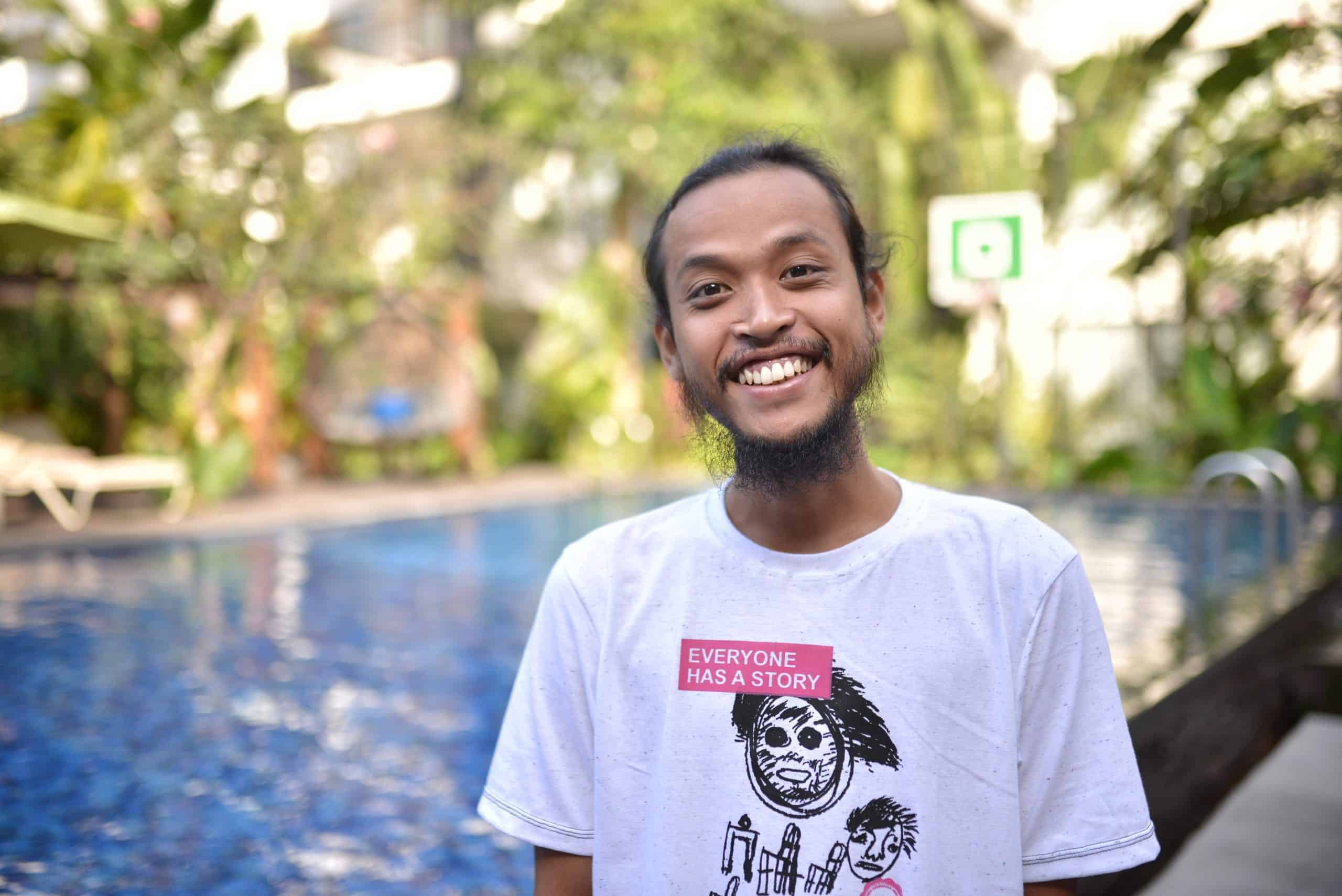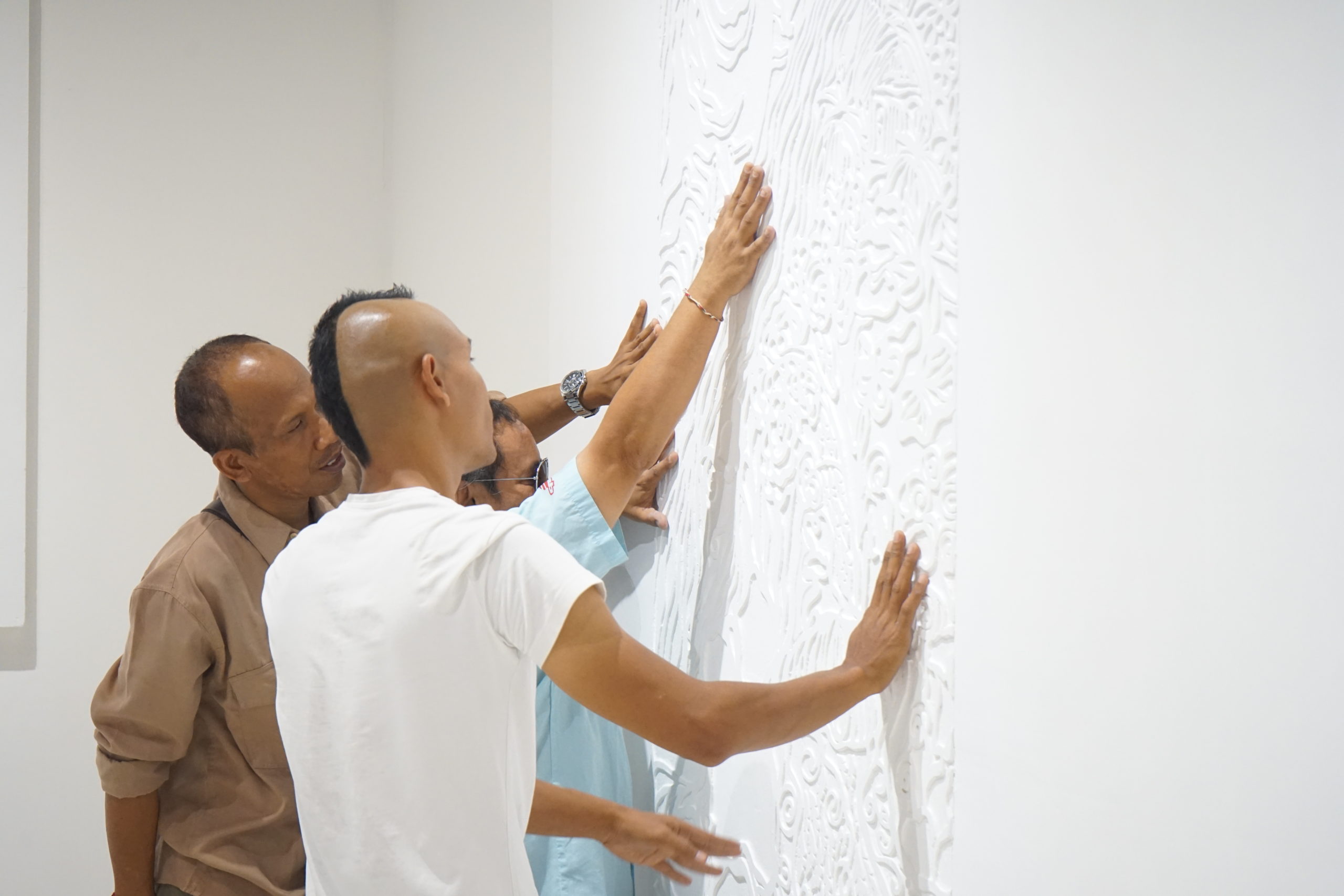We spoke to Dondik Robini, designer and founder of Mawea. Mawea is a creative economy platform based in Lumanjang, East Java, Indonesia
Dondik, has been an active coordinator of Kelas Inspirasi (Inspirational Class), a movement that encourages professionals to teach or speak for a day in marginalised primary school in Lumajang, to expand young students knowledge of what type of professions are available out there.
His first interaction with disabled people happened at the movement, where he planned inspirational classes from disabled professionals.
He then moved on programming different social events such as breaking fast together prior to Ied, volunteering together, and inclusive exhibition programme.
Some pictures of Dondik at these events.
In this interview, we talked to Dondik about his experiences and his motivation for working with disabled people.
Tell us a bit more about your experiences in programming social events that include disabled people?
“Before participating in Gerakan Kreabilitas, I hold many social events for the young people in Lumajang, which includes disabled friends, such as breaking our fast during Ramadan together, environmental action, and also cultural events.
In the beginning, I couldn’t really think about working with disabled people and I was awkward, afraid to say the wrong things when I am joking around. But after a few activities and interactions, I found that my disabled friends are so much fun, they don’t take things too seriously.
“I think what we need to really pay attention to when working with disabled people, is the location and the transportation to and from the location. Only recently, people are becoming more aware of disability access needs. Government offices have tried to accommodate wheelchair users.
There are also more of our disabled friends who became more proactive in voicing their concerns.
What do you feel is your biggest challenge and how do you overcome this?
“Mostly for me, the barrier is psychological.
Adding to that, despite a large amount of time and effort my disabled friends spent in advocating for their rights, they still feel that they have not done enough and are underappreciated. Perhaps this is because the previous governments have not been paying attention to disabled people.
This means, that when we want to collaborate with them, we need to put extra care into our effort and communications with them. We have to be more aware and sensitive to what they mean when they communicate with you.
When I worked with Pak Is, the disabled artist Wulang and I are collaborating with at the moment, we need his wife Ibu Yeni, to help us communicate with him. Often we have to repeat ourselves or she has to re-iterate what we meant.
During the process, we can’t really push him to produce an amount of work or insist on a deadline. I think it is more freeing this way, also we found that the work and results are so much better this way.”
Why do you think we should have creative collaboration with disabled artists?
“To tell you the truth, in the beginning, I never thought of collaborating with disabled people. But Gerakan Kreabilitas gave me a new and different perspective, that someone’s physical condition should not be a barrier but more of plenty of opportunities to discover different ideas and new artwork. The potential in this producing a more interesting work is huge, So why do want to work in any other way when you can work with those with a lot of interesting potentials?
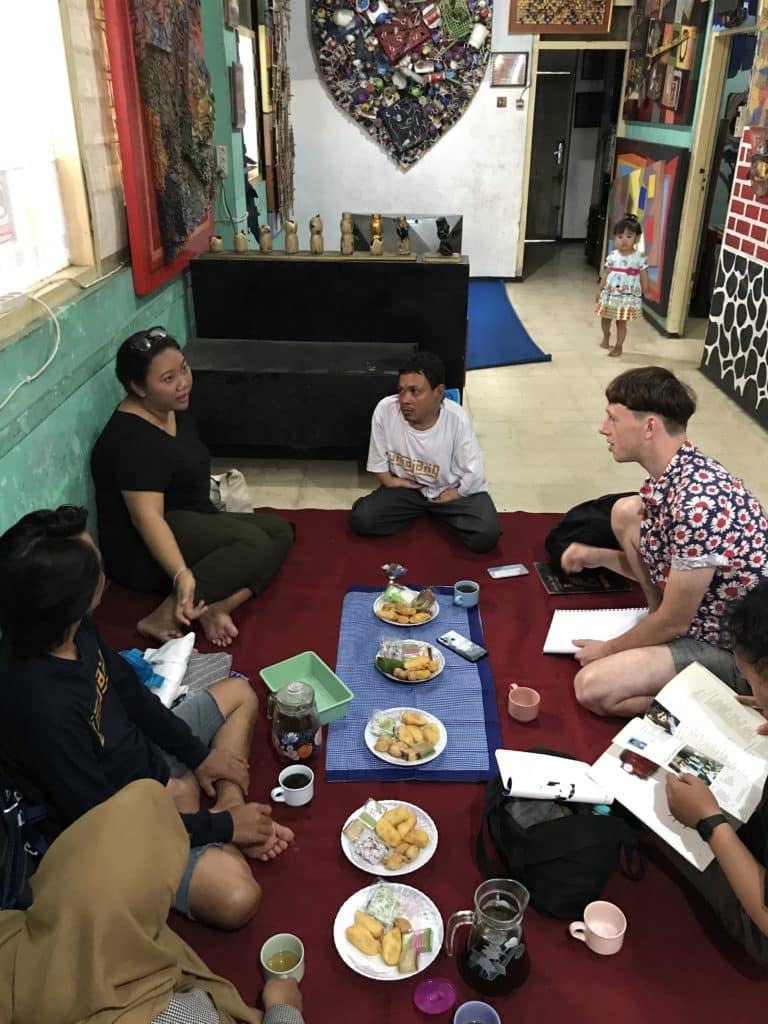
Thanks for the interview Dondik , till we meet again.
If you want to find out more about Dondik’s work with the youths of Lumajang please check out this Instagram account.
At the moment, beside working on Mawea Lumajang, Dondik is also collaborating with Wulang Sunu, an artist and illustrator based in Yogyakarta, and Pak Iskandar, a disabled artist based in Lumajang, to produce fashion items under the brand Iskandar Collective.
Iskandar Collective is a result of their participation in our Gerakan Kreabilitas project, which is a part of British Council: Developing Inclusive Creative Economy Programme.
If you want to try to collaborate with disabled people, our Inclusivity Toolkit might help by providing you some tips and how to’s. The Indonesian toolkit is available to download in full in PDF format here.
